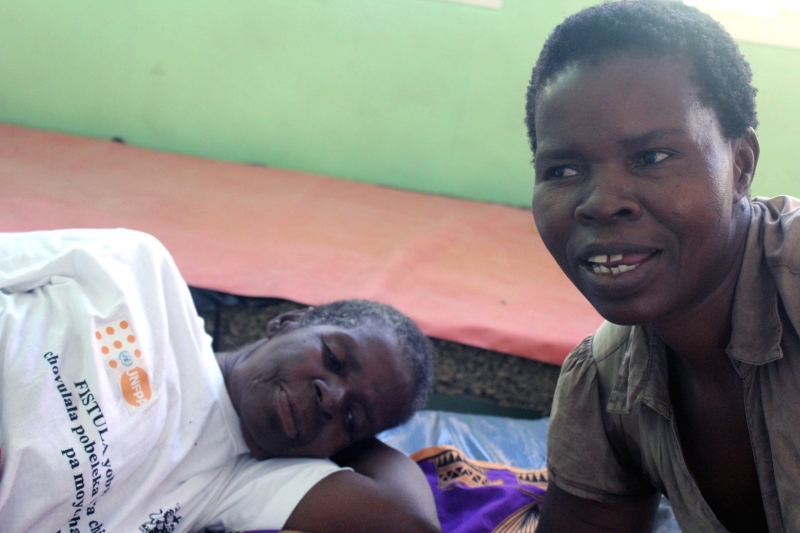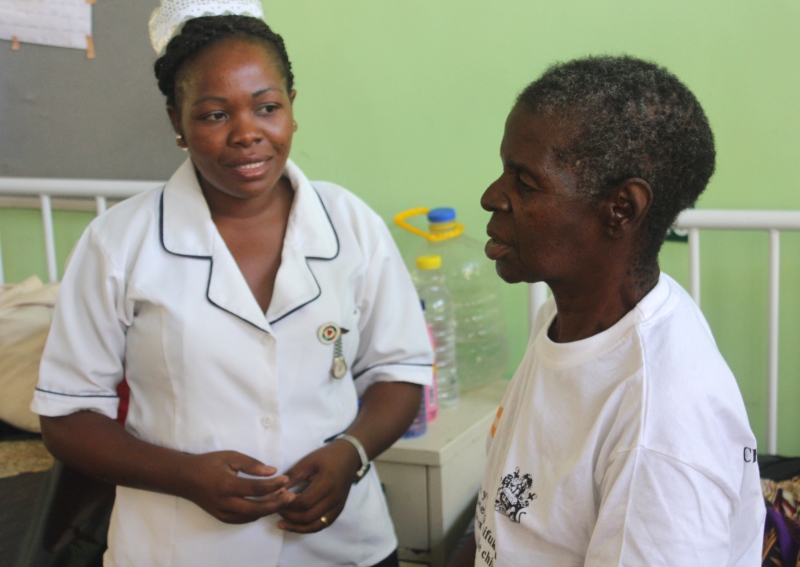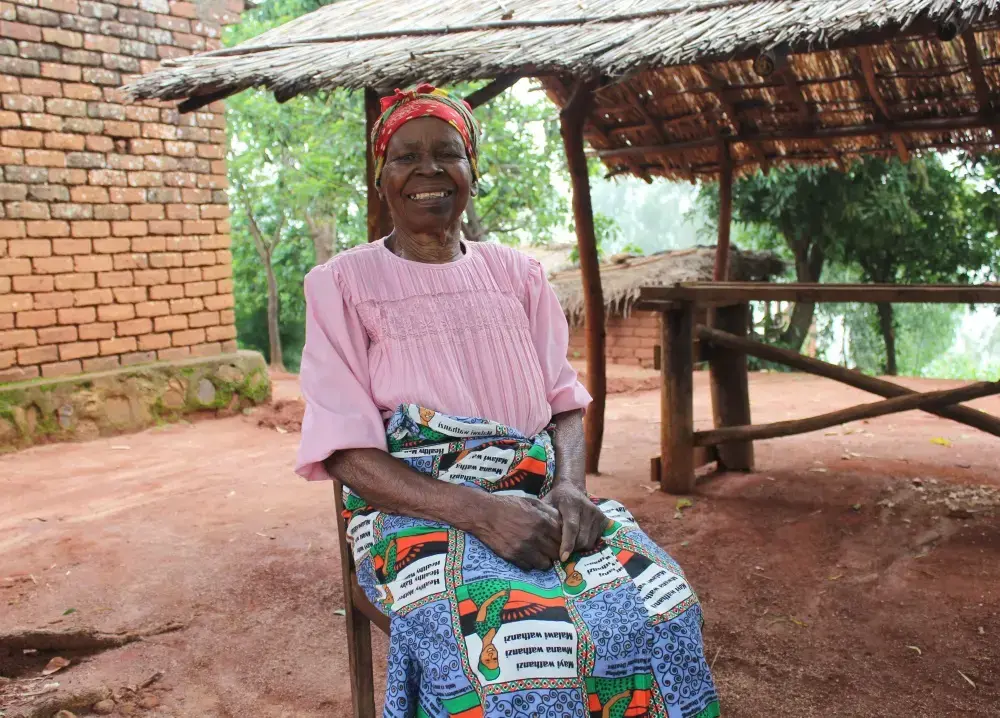MANGOCHI DISTRICT, Malawi – What her son-in-law saw at the hospital changed her life – women wrapped in chitenje but past the age of giving birth were coming and going from the maternity ward. For him their reason was jaw-dropping.
That was when Nachilango Bisolomo, 300 kilometres away in Dedza district, received a phone call from her son-in-law.
He was attending Monkey-bay Community Hospital with his wife, who was receiving treatment for hypertension. The women in chitenje (piece of fabric worn by women, wrapped around the waist or chest) told him they were attending an obstetric fistula camp, at which women and girls who leaked urine or faeces – or both – were being repaired free of charge.
Immediately he thought of his mother-in-law, Ms. Bisolomo, who had suffered from this debilitating condition for many years. He called her to explain what he had discovered.
My life has been hell. Everywhere I sat, I left a mark and people would come to see and talk so much about my condition.
New hope for fistula repair

The next day, she found herself seated on a bed in the hospital, waiting in great anticipation for her turn in theatre for repair surgery.
Ms. Bisolomo’s niece, Anastanzia Paulo, could not believe their good luck. She prayed, as she watched her aunt being wheeled into the theatre, that she would survive the surgery.
More than three hours later Ms. Bisolomo was wheeled back out. As she lay on a bed in the ward, her niece cried tears of joy. A terrible journey lasting 46 years had finally come to an end. For the family, it was a dream come true.
A long journey with fistula begins
Ms. Bisolomo was born Nasiwelo Bisolomo. She gave birth at the age of 18, at a time when the nearest hospital was more than a hundred kilometres away from her home. Her parents could not afford to take her to the hospital where she would have received emergency medical intervention.
Attempting to give birth at home, she endured a long labour and as a result, developed a fistula. Tragically, her child died in the process.
Her long journey with fistula had begun.
“My life has been hell. Everywhere I sat, I left a mark and people would come to see and talk so much about my condition. I was helpless and could not do anything about this. I accepted that I will be like this for the rest of my life,” she says.
I want to be an example to many that this condition [fistula] can be cured.
I changed my name due to fistula
Ms. Bisolomo’s life with fistula was one of such difficulty that she decided to change her name to Nachilango (one who has been punished), to reflect her condition. Even today, all in her village call her by this name.
“I don’t intend to change my name when I go back, despite being healed, because I want to still be an example to many that this condition can be cured,” she says from her hospital bed.
A year after Ms. Bisolomo had developed the fistula, miraculously she gave birth to a baby girl, Natumani, who is now 45 years old.
Ms. Bisolomo was lucky. Her husband remained by her side until he died in 2012. Many men leave their wives after they develop a fistula as they can’t bear the smell and embarrasment.
UNFPA supports fistula programme in Malawi
The two-week fistula repair camp at Monkey-bay Community Hospital was supported by UNFPA, the United Nations Populatio Fund and organized by Mangochi District Hospital, to help heal women who have been living with this condition.
People would come to see me when I was sick from other diseases but not for the fistula.
Many women in her village had a fistula but it was surrounded by a culture of silence, Ms. Bisolomo said.
“People would come to see me when I was sick from other diseases but not for this condition. I guess they were tired of it,” she says. She wondered if their attitude was because many women in her community suffered from it, so it was not uncommon.
Gonjezo Kumpatsa was one of the medical clinicians on the operating team, the day she received treatment for her fistula. “It took us almost three hours in the theatre to have her repaired. It was a complicated condition, coupled with her age, but we are hopeful she will be healed after a successful operation.”
Spreading the word of successful fistula repair

During the fistula repair camp, 41 patients were registered and scheduled to be repaired. While some were referred for specialized operations, over 50 per cent of them were healed and discharged, while others were held under observation.
Those treated helped to spread the word.
“We are able to mobilize more patients through the treated patients, who act as our ambassadors and mobilize others to come for treatment,” says Lydia Kasiya, a nurse and midwife technician who cares for the fistula patients.
Every year, UNFPA supports fistula camps in selected districts to create an opportunity for women with this condition to be healed. In 2016, the three districts of Chikwawa, Mulanje and Mangochi, including the Bwaila fistula centre, were supported in conducting this exercise.
I will tell them fistula is a condition that can be cured.
Since 2011, UNFPA in collaboration with the Freedom From Fistula Foundation and AMREF Health Africa has been supporting the Government of Malawi to provide fistula treatment in Lilongwe and Mangochi.
Most of the patients are mobilized through media campaigns and community awareness-raising campaigns, during which traditional leaders and fistula survivors act as advocates, taking the news of successful repair to other sufferers.
For Ms. Bisolomo’s family, the fistula camp has been life changing. People in her village will not believe it when they see she has been cured, says her niece, Ms. Paulo. “I am sure people will ask who this amazing traditional healer is, but I will tell them it’s the hospital and it is a condition that can be cured.”
By Henry Chimbali




